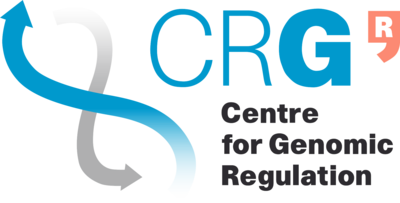BIST Introduction to Statistics 2016
Contents
BIST "Introduction to Biostatistics" Course
Course Description
This introductory course to statistics and probability theory is modeled after the traditional university course Statistics 101 and will be given by the CRG staff and PhD students. The material is offered in 5 consecutive modules (please see Course Syllabus below), each containing a morning lecture and an afternoon practicum in a computer class. For practical exercises we will use R programming language and R Studio. However, this course is focused on statistics rather than R; therefore, each practicum is designed with the purpose to demonstrate and reinforce understanding of concepts introduced in the lecture rather than to provide a training in R.
Course Objectives
To introduce the basic concepts of statistics and probability and to demonstrate how they can be applied to real-life biological problems using R. Knowledge of statistics or R is not required for taking this course. However, familiarity with the material in the previous modules is recommend if the modules are not taken in a sequence.
Course Instructors
- Dmitri Pervouchine (lectures) pervouchine@gmail.com
- German Demidov (practicums III, V) german.demidov@crg.eu
- Ande Gohr (practicum II) Andre.Gohr@crg.eu
- Sarah Bonnin (lecture on R, practicum I) sarah.bonnin@crg.eu
- Julia Ponomarenko (organizer, practicum III) julia.ponomarenko@crg.eu
Course Syllabus, Schedule and Materials
MODULE I. Descriptive statistics. May 6, 2016
- LECTURE I. Lecture Slides Exploratory data analysis: bar-plot, histogram, CDF, box-plot, scatter-plot, pie charts etc. Samples, measures of center and spread, percentiles, odds ratio. Outliers and robustness. Experiment versus observational study, confounding factors, simple random sample, other types of sampling, biases in sampling techniques.
- LECTURE II. Introduction to R programming language and R Studio: Data types, variables, packages, functions, handling files/scripts/projects.
- PRACTICUM. Basic plots in R using the ggplot2 package.
MODULE II. Introduction to Probability. May 9, 2016
- LECTURE. Independence, conditional probability, Bayes formula. Distributions, population mean and population variance, Binomial, Poisson, and Normal distribution. Central Limit theorem and the Law of large numbers. Continuity correction. Sampling with and without replacement. Correction for finite population size.
- PRACTICUM. Elementary probability problems in R, pdf and cdf functions, simulation explicating the law of large numbers.
MODULE III. Statistical Inference, part I.
- LECTURE. Statistical Inference, part I. The concept of hypothesis testing, type I and type II error, false discovery rate. Significance and confidence level, p-value. Confidence intervals. One-sided and two-sided tests and confidence intervals. Sampling distribution, estimators, standard error. Normal probabilities in application to p-value. One-sample and two-sample tests for independent and matched samples with known variance. The case of unknown variance and Student t-distribution, assumption of normality. Pooled variance and equal variances assumption.
- PRACTICUM. One- and two-sample tests with known and unknown variance, test for proportions, simulation involving confidence intervals and t-distribution.
MODULE IV. Statistical Inference, part II. May 18, 2016
- LECTURE. Statistical Inference, part II. Estimation of variance. Fisher test for variance equality. Non-parametric tests. Sign test, Wilcoxon sum of ranks test (Mann-Whitney U-test), Wilcoxon signed rank test. Chi-square test for goodness of fit, chi-square test for independence. Kolmogorov-Smirnov (KS) test. Shapiro test for normality. Sample size estimation. Correction for multiple testing, family-wise error rate.
- PRACTICUM. Tests with unknown variance, non-parametric tests, simulations explicating non-parametric tests, FDR.
MODULE V. Statistical modeling, Regression. May 20, 2016
- LECTURE. Simple linear regression model, residuals, degrees of freedom, least squares method, correlation coefficient, variance decomposition, determination coefficient. Interpretation of the slope, correlation, and determination coefficients. Standard error and statistical inference in simple linear regression model. Analysis of variance (ANOVA). One-way and two-way ANOVA.
- PRACTICUM. Problems on linear regression, ANOVA, data transformation.
External Resources
- Nature Web-collection "Statistics for Biologists"
- 100 Statistical Tests.pdf - ResearchGate - just search Google to get a link
- Book "Basics of Statistics" by Jarko Isotalo
- R Tutorials by William B. King
- Tutorials R for basic statistics
- Blog "R-bloggers"
- StatsBlogs
- Blog "Learning R"
- Blog "R you ready?"
- "R-statistics blog"
- Self-paced online courses from UC Berkeley: Descriptive Statistics. Probability. Inference.
- Online book recommended for the UC Berkeley courses
- Self-paced online course "Explore Statistics with R"
- Online course from Stanford "An Introduction to Statistical Learning with Applications in R"
- Self-paced online course from Microsoft "Intro to R programming"
- Self-paced online course from Harvard "Statistics and R"
- Self-paced online course from Harvard "Statistical Inference and Modeling for High-throughput Experiments"
- VIB "Basic statistics theory" course slides.
- VIB "Basic statistics in R" course. Tutorial, excercises, cheat sheets.
